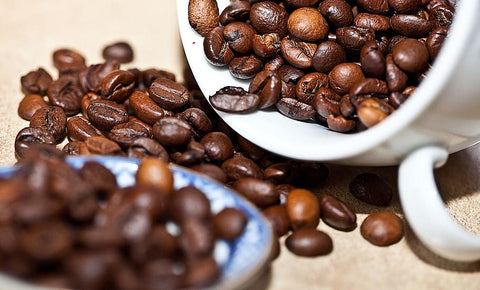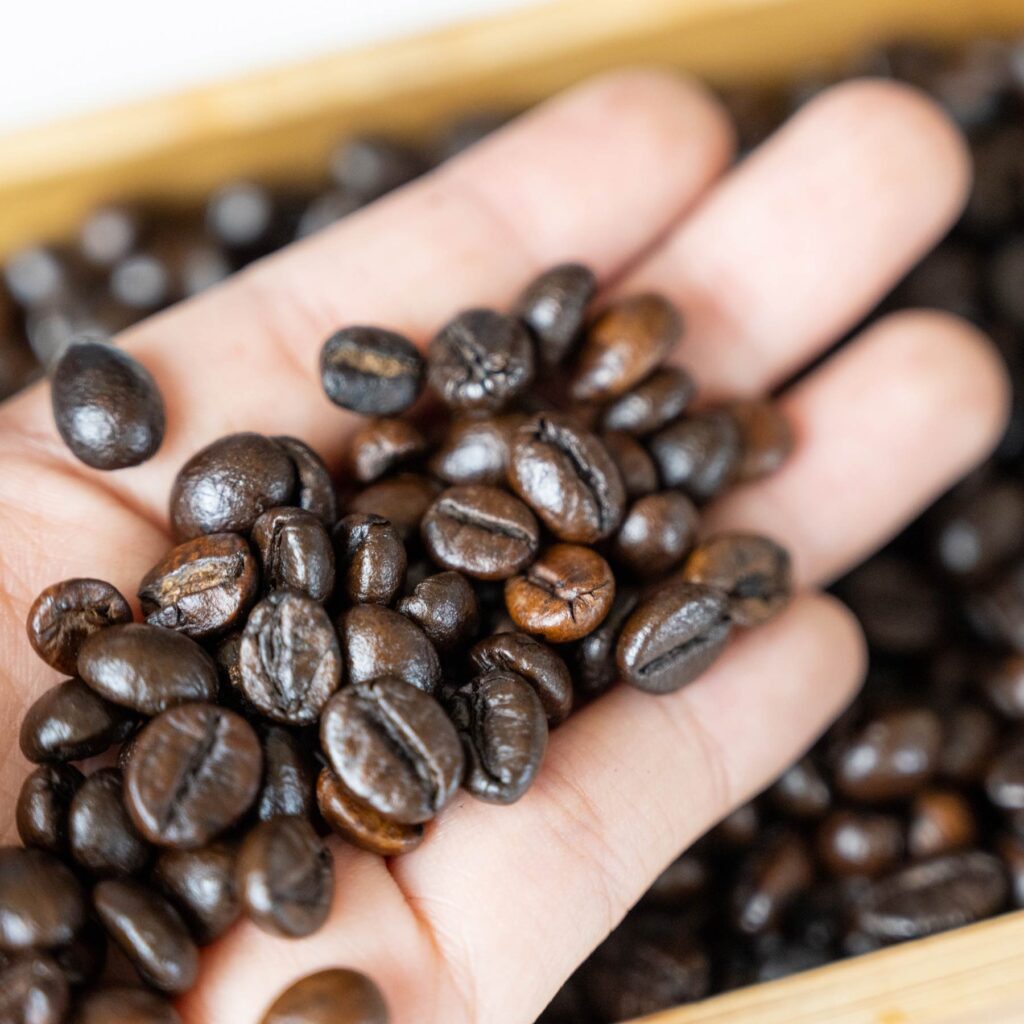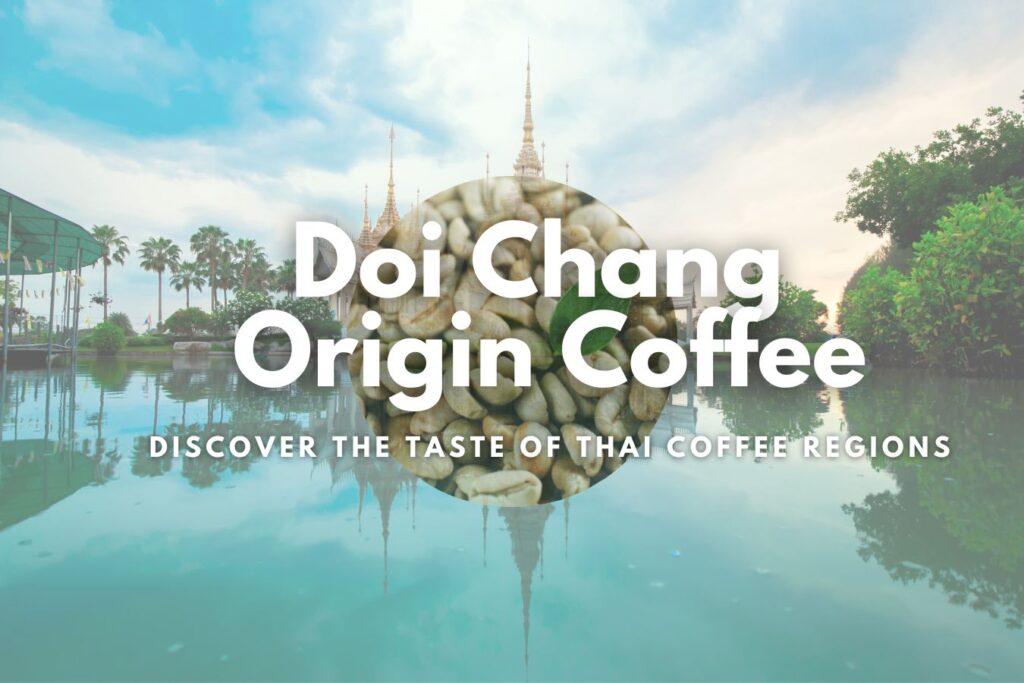In “Discovering the Rich Taste of Thai Coffee: From Bean to Cup,” you will embark on a delightful journey exploring the invigorating experience of Thai coffee. As you delve into the article, you will uncover the intriguing details of how this rich and flavorful brew goes from bean to cup. Set against the backdrop of Thailand’s vibrant tourism industry, with its stunning attractions, bustling cities, delectable cuisine, and picturesque beaches, this article promises to offer a captivating glimpse into the world of Thai coffee. Get ready to awaken your taste buds and satisfy your wanderlust as you discover the hidden gem that is Thai coffee.
The History of Thai Coffee
Origins of Coffee in Thailand
The history of Thai coffee dates back to the late 19th century when King Rama V, also known as King Chulalongkorn, visited Singapore and was introduced to the fragrant and energizing drink. Struck by its flavors and invigorating effects, the King decided to bring coffee plants back to Thailand. He enlisted the help of a Thai nobleman, Chao Phraya Surasak Montri, who successfully cultivated the first coffee plants in the country. Thus began the journey of Thai coffee.
Coffee Cultivation in Thailand
Coffee cultivation in Thailand predominantly takes place in the northern, central, and southern regions of the country. The mountainous terrain, rich soil, and favorable climate create the perfect conditions for growing coffee beans. Thai coffee farmers have mastered the art of cultivation, focusing on quality rather than quantity. They carefully select the best coffee plant varieties, nurture their crops with meticulous care, and employ sustainable farming practices, ensuring the production of exceptional coffee beans.
Traditional Coffee Preparation
Thai coffee holds a special place in the hearts of locals and visitors alike, thanks to the unique traditional coffee preparation methods. One such method involves roasting the coffee beans with sugar and butter over an open flame, giving the brew a distinct caramelized flavor. Additionally, Thai coffee is often brewed using traditional techniques such as the “sock” filter or “phin” filter, which adds an aromatic touch and enhances the flavors of the beverage.
Types of Thai Coffee Beans
Arabica Beans
Arabica beans are highly prized for their exceptional flavor and aroma. These beans are grown in the cooler mountainous regions of Thailand, such as Chiang Mai and Chiang Rai in the north. Arabica beans in Thailand have a delicate acidity, a smooth body, and often exhibit fruity and floral notes. Their distinctiveness and high quality make them a favorite among coffee connoisseurs.
Robusta Beans
Robusta beans, on the other hand, are known for their robust flavor and higher caffeine content. These beans thrive in the warmer regions of Thailand, such as Surat Thani and Phuket in the south. Robusta beans are characterized by their full-bodied nature, earthy flavors, and a hint of bitterness. They are often used in blends to add depth and strength to the resulting coffee.
Exciting Varieties and Blends
Apart from Arabica and Robusta beans, Thai coffee enthusiasts enjoy exploring various coffee bean varieties and blends. From single-origin beans grown in specific regions to unique blends created by skilled roasters, there is a wide range of options to choose from. Some popular blends include Thai-Dutch, which combines Thai Arabica beans with beans from the Netherlands, and Thai-Yunnan, a blend of Thai and Chinese coffee beans. These exciting varieties and blends showcase the versatility and creativity of Thai coffee producers.

Coffee Growing Regions in Thailand
The Northern Region: Chiang Mai and Chiang Rai
Chiang Mai and Chiang Rai, located in the mountainous northern region of Thailand, are renowned for their picturesque landscapes and thriving coffee plantations. The cooler climate and fertile soil make these areas ideal for growing Arabica coffee beans. Coffee farmers in these regions take pride in their organic farming practices, ensuring that the beans are of the highest quality.
The Central Region: Doi Tung and Doi Chaang
The central region of Thailand is home to two prominent coffee growing areas, Doi Tung and Doi Chaang. Doi Tung, in the Chiang Rai province, is known for its sustainable coffee production and the efforts of the Doi Tung Development Project. Doi Chaang, located in the Chiang Mai province, gained international recognition for its fair-trade coffee cooperative, which supports local farmers and communities.
The Southern Region: Surat Thani and Phuket
Surat Thani and Phuket, situated in the southern region of Thailand, offer coffee enthusiasts a distinct coffee experience. The warm climate, abundant rainfall, and fertile soil create favorable conditions for Robusta coffee plants. The coffee produced in this region often displays strong and bold flavors, with hints of chocolate and spices.
The Art of Coffee Roasting in Thailand
Roasting Techniques
Roasting coffee beans is a crucial step in the coffee production process, as it brings out the unique flavors and aromas locked within the beans. Thai coffee roasters have perfected their craft, utilizing various roasting techniques to create a diverse range of flavors. From medium roasts that highlight the delicate nuances of the beans to dark roasts that impart rich, smoky flavors, the art of coffee roasting in Thailand is a testament to the dedication and skill of the roasters.
Flavor Profiles of Thai Coffee
Thai coffee offers a wide spectrum of flavors, each influenced by factors such as the variety of the beans, the region they are grown in, and the roasting techniques employed. Arabica beans from the northern regions often exhibit fruity and floral notes, with a touch of acidity. Robusta beans from the southern regions, on the other hand, showcase earthy and strong flavors, balanced with hints of chocolate and spices. The flavor profiles of Thai coffee truly capture the essence of the country’s diverse geography and cultural heritage.
Special Roasting Traditions
Thai coffee roasters pay homage to their cultural traditions and incorporate them into their craft. One such tradition is the use of Thai herbs and spices during the roasting process, infusing the beans with unique flavors. Popular additions include cardamom, pandan leaves, and lemongrass, which add subtle fragrances and nuances to the final brew. These special roasting traditions add a distinct Thai touch to the coffee experience.

Unique Brewing Methods in Thailand
Traditional Thai Coffee Bags
A traditional brewing method in Thailand involves using small fabric bags filled with ground coffee. These bags are immersed in hot water, allowing the coffee to steep and infuse the water with its flavors. This method is often used by street vendors and offers a quick and convenient way to enjoy a cup of Thai coffee on the go. The coffee bags are known for their strong and bold flavors, making them a popular choice among locals.
Phin Filter
The Phin filter is a popular brewing device widely used in Thailand. It consists of a small metal chamber with a perforated bottom and a fitted lid. Coffee grounds are placed inside the chamber, and hot water is poured over them. The water slowly drips through the perforations, extracting the flavors and capturing the essence of the beans. The Phin filter method produces a smooth and aromatic cup of coffee, allowing coffee enthusiasts to savor every sip.
The Special Process of Oliang
Oliang is a unique Thai coffee beverage that combines the flavors of coffee, spices, and grains. The coffee beans are roasted with various ingredients, such as sesame, corn, and soybeans, giving Oliang its distinctive taste. The roasted mixture is then coarsely ground and brewed using a Phin filter. Oliang is often served iced and is a popular choice during hot summers, offering a refreshing and flavorful alternative to traditional hot coffee.
Discovering the Flavors of Thai Coffee
Earthy and Nutty Tones
Thai coffee, particularly Robusta beans, is known for its earthy and nutty tones. The natural flavors of the coffee beans are enhanced during the roasting process, resulting in a comforting cup of coffee. The earthy notes offer depth and complexity, while the nutty undertones add a pleasant richness to the overall flavor profile. Pairing Thai coffee with desserts or pastries that feature nuts can further accentuate these delightful flavors.
Hints of Chocolate and Caramel
Thai coffee, especially when brewed with Arabica beans, often exhibits hints of chocolate and caramel. The careful selection of beans and the roasting techniques employed contribute to these luscious flavors. The subtle sweetness of caramel and the rich depth of chocolate make Thai coffee a decadent treat for those with a sweet tooth. Enjoying it as a standalone beverage or pairing it with creamy desserts can highlight these delightful flavor notes.
Aromatic and Spicy Notes
Thai coffee is known for its aromatic qualities, with various brewing methods extracting and preserving the fragrances locked within the beans. From floral and fruity notes found in Arabica beans to the robust spiciness of the Robusta brews, Thai coffee offers a sensory experience like no other. The aroma of Thai coffee can transport you to the lush green landscapes and vibrant markets of Thailand, evoking a sense of adventure for coffee enthusiasts.

Thai Coffee Enhancements
Condensed Milk
A popular addition to Thai coffee is condensed milk, which adds a creamy and indulgent touch to the beverage. The sweet and thick consistency of condensed milk complements the robustness of Thai coffee, creating a balanced and satisfying flavor profile. This combination is often enjoyed in traditional Thai coffee shops, where the use of condensed milk is an integral part of the coffee culture.
Palm Sugar
For those who prefer a more natural and nuanced sweetness, palm sugar is often used as a sweetener in Thai coffee. This unrefined sugar, derived from palm trees, adds a distinctive caramel-like flavor to the brew. The subtle complexities of palm sugar perfectly complement the depth of Thai coffee, adding a touch of authenticity and elevating the overall drinking experience.
Coconut Milk
Coconut milk is a unique and delightful addition to Thai coffee, creating a creamy and tropical twist. This dairy-free alternative complements the flavors of Thai coffee, particularly those that exhibit sweeter and milder notes. The natural sweetness of coconut milk pairs harmoniously with the coffee’s earthy undertones, offering a refreshing and delicious twist to this beloved beverage.
Thai Coffee Culture and Traditions
Coffee House Experiences
Thai coffee culture extends beyond the beverage itself and encompasses the vibrant coffee house experiences found throughout the country. Thai coffee shops are known for their cozy and relaxed atmospheres, offering a space for locals and tourists to socialize, work, or simply unwind. These coffee houses often incorporate unique interior designs, reflecting a fusion of modern and traditional Thai aesthetics. The warmth and hospitality of the staff add to the overall experience, making Thai coffee houses a must-visit destination for any coffee lover.
Influence of Buddhist Monks
As Buddhism is deeply ingrained in Thai culture, it has also influenced the coffee traditions of the country. Monks have played a significant role in the cultivation and production of Thai coffee, often residing in or near coffee-growing regions. They have introduced sustainable farming practices and imparted their knowledge of organic cultivation methods to local farmers. The involvement of Buddhist monks in Thai coffee production highlights the holistic and ethical approach towards the craft.
Craftsmanship and Attention to Detail
Thai coffee is crafted with an emphasis on attention to detail and craftsmanship. From the careful selection of beans to the precise roasting techniques and brewing methods, every step is executed with precision and dedication. Thai coffee producers take pride in their work, ensuring that each cup of coffee offers a memorable experience. This commitment to quality and the pursuit of excellence is evident in the flavors and aromas that Thai coffee delivers.

Coffee Tourism in Thailand
Visiting Coffee Plantations
Coffee tourism has gained popularity in Thailand, with visitors seeking immersive experiences on coffee plantations. Travelers can explore the stunning landscapes, learn about the coffee cultivation process, and even participate in coffee harvesting activities. Guided tours offer insights into the history, traditions, and sustainable practices of Thai coffee production. A visit to a coffee plantation in Thailand allows you to witness firsthand the journey of coffee, from bean to cup.
Attending Coffee Festivals
Thailand is home to several vibrant coffee festivals that showcase the diversity and vibrancy of the country’s coffee culture. These festivals bring together coffee enthusiasts, farmers, roasters, and vendors, offering a unique opportunity to sample a wide range of Thai coffees. From coffee competitions showcasing the skills of baristas to workshops on brewing techniques, these festivals celebrate the love for coffee and serve as a platform for industry professionals and enthusiasts to connect and learn.
Exploring Coffee Cafés
Coffee cafés in Thailand are a delight for coffee lovers seeking unique flavors and experiences. From specialty coffee shops in bustling city centers to cozy establishments tucked away in charming neighborhoods, the café scene in Thailand offers something for everyone. Each café has its own personality and ambiance, with some focusing on showcasing local beans and brewing methods, while others collaborate with international roasters to offer a global coffee experience. Exploring coffee cafés in Thailand is a fantastic way to discover hidden gems and immerse yourself in the vibrant coffee culture of the country.
Sustainable Coffee Practices in Thailand
Organic and Fair Trade Coffee
Thailand has witnessed a growing demand for organic and fair-trade coffee, reflecting a global trend towards sustainable and ethically sourced products. Thai coffee farmers have embraced organic farming practices, avoiding the use of synthetic fertilizers and pesticides, and prioritizing the health of the environment and the well-being of the workers. Fair-trade coffee cooperatives ensure that farmers receive fair prices for their beans, empowering them to invest in their communities and create a more sustainable future for Thai coffee.
Environmental Conservation Efforts
Coffee farmers in Thailand understand the importance of preserving the natural environment for the long-term sustainability of their crops. Many plantations have implemented environmental conservation efforts such as reforestation projects, water conservation methods, and biodiversity preservation. These initiatives not only protect the ecosystems surrounding the coffee farms but also contribute to the production of high-quality coffee beans, resulting in a win-win situation for both the environment and the coffee industry.
Supporting Local Coffee Farmers
By choosing Thai coffee, consumers can actively support local coffee farmers and their communities. This direct support helps sustain the livelihoods of small-scale farmers and encourages the continuation of traditional coffee cultivation methods. Additionally, purchasing Thai coffee enables coffee enthusiasts to enjoy unique flavors and contribute to the collective effort of promoting sustainability and social empowerment within the Thai coffee industry.
In conclusion, the fascinating journey of Thai coffee, from its origins in the late 19th century to its thriving industry today, showcases the rich cultural heritage, dedication to quality, and sustainable practices of the country. Exploring the diverse varieties, flavors, and brewing methods of Thai coffee offers an invigorating experience that brings together taste, aroma, and a deep appreciation for the craftsmanship and traditions behind each cup. Whether savoring a traditional Thai coffee bag or indulging in a specialty blend at a local coffee house, Thai coffee invites you to embark on a captivating sensory journey like no other. So, grab a cup of Thai coffee, sit back, and immerse yourself in the enchanting world of this extraordinary brew.

